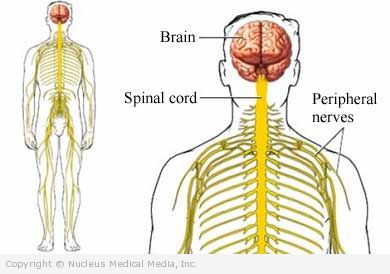(Lockjaw)
Tetanus – Definition
Tetanus is a bacterial infection that affects the nervous system. Tetanus bacteria from soil, dust, or manure enter the body through a break in the skin. The infection may result in severe muscle spasms. Such spasms lead to lockjaw, which prevents opening or closing of the mouth. Tetanus can be fatal.
Tetanus – Causes
Tetanus is caused by a toxin produced by the spores of the bacterium Clostridium tetani.
Tetanus – Risk Factors
A risk factor is something that increases your chance of getting a disease or condition. Your risk of tetanus is increased if you are:
- Not immunized to tetanus
- Not updating tetanus shot regularly
- An IV drug user
- Age: 50 or older
- Have skin sores or wounds
- Have had burns
- Have had exposure of open wounds to soil or animal feces
Tetanus – Symptoms
Symptoms of tetanus may include:
- Headache
- Stiff jaw muscles (lockjaw) or neck muscles
- Drooling or trouble swallowing
- Muscle spasticity or rigidity
- Sweating
- Fever
- Irritability
- Pain or tingling at the wound site
- High or low blood pressure
- Seizures
- Difficulty breathing
- Heart beat that is irregular, too fast or too slow
- Cardiac arrest
- Dehydration
- Pneumonia (a complication of the infection)
Tetanus – Diagnosis
The doctor will ask about your symptoms and medical history, and perform a physical exam. The diagnosis is mainly based on the medical history. Your doctor may culture the wound, but culture results are not always accurate.
Tetanus – Treatment
Treatment may include:
- Hospitalization to manage complications of the infection
- Opening and cleaning of the wound, or sometimes surgical removal of the entire wounded area
- Antibiotics
- Tetanus immune globulin (antibodies against tetanus that help neutralize the tetanus toxin)
- A tetanus shot, if your tetanus vaccine is not up to date
In some cases of trouble breathing or swallowing, a breathing tube may be inserted in the throat to help keep the airway open. In certain situations, a surgical procedure called a tracheotomy may be done to provide an open airway.
Tetanus – Prevention
The best means of prevention is immunization. All children (with few exceptions) should receive the DTaP vaccine series. This protects against diphtheria, tetanus, and pertussis. Another vaccine called Tdap is routinely given to children aged 11-12 years after they have completed the DTaP series of shots. After that, adults should receive a booster dose of the tetanus and diphtheria vaccine (Td) every 10 years or after an exposure to tetanus (under some circumstances).
If you or your child has not been fully vaccinated, talk to the doctor. There are catch-up schedules available.
In addition to the vaccine, you can prevent tetanus by taking proper care of wounds:
- Promptly clean all wounds.
- See your doctor for medical care of wounds, especially if you have not had a tetanus vaccination in the last 10 years.

